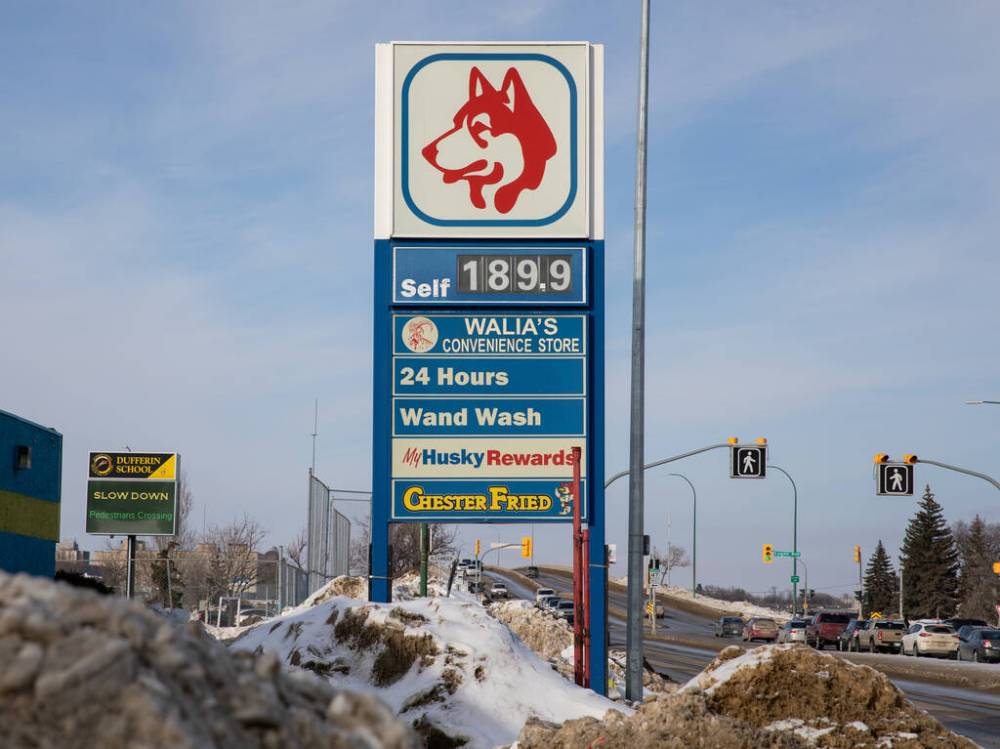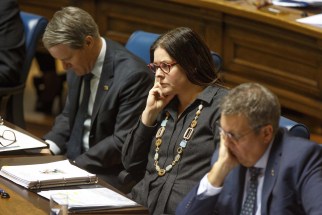Province should drive its electric advantage
Read this article for free:
or
Already have an account? Log in here »
To continue reading, please subscribe:
Monthly Digital Subscription
$0 for the first 4 weeks*
- Enjoy unlimited reading on winnipegfreepress.com
- Read the E-Edition, our digital replica newspaper
- Access News Break, our award-winning app
- Play interactive puzzles
*No charge for 4 weeks then price increases to the regular rate of $19.00 plus GST every four weeks. Offer available to new and qualified returning subscribers only. Cancel any time.
Monthly Digital Subscription
$4.75/week*
- Enjoy unlimited reading on winnipegfreepress.com
- Read the E-Edition, our digital replica newspaper
- Access News Break, our award-winning app
- Play interactive puzzles
*Billed as $19 plus GST every four weeks. Cancel any time.
To continue reading, please subscribe:
Add Free Press access to your Brandon Sun subscription for only an additional
$1 for the first 4 weeks*
*Your next subscription payment will increase by $1.00 and you will be charged $16.99 plus GST for four weeks. After four weeks, your payment will increase to $23.99 plus GST every four weeks.
Read unlimited articles for free today:
or
Already have an account? Log in here »
Hey there, time traveller!
This article was published 15/03/2022 (1363 days ago), so information in it may no longer be current.
Sometimes opportunity knocks, but sometimes it glides up as quietly as an electric vehicle.
Interest in EVs has suddenly soared in Manitoba and elsewhere, thanks to gasoline that now costs between $1.70 and $1.90 a litre and has drivers considering alternatives to their traditional fossil-fuel guzzlers. Winnipeg vehicle dealers say the supply of EVs can’t keep up with the demand, which has climbed steeply in recent weeks as sanctions against Russian oil imports helped boost the price at the pumps.
For the Kia EV6, there’s a 12-month waiting list. For the Toyota RAV4 Prime, 100 people are already queued. For a special model of Tesla, the waitlist stretches to 2023.
The swelling demand is obviously a problem for would-be buyers who can’t get an EV promptly, and it’s also a problem for the dealers who could grow their business if they had more electric vehicles to sell.

But for the government of Manitoba, the surge of interest in EVs should be seen as an opportunity.
This province has long lagged behind many other jurisdictions when it comes to providing rebates for EV purchases and also ensuring a reliable network of fast-charge stations. As a result, ownership of EVs in Manitoba has been disappointingly paltry, with only one per cent of all vehicles being electric and seven per cent being of hybrid variety.
Adding a provincial rebate to the existing federal incentive is an important way to whittle down the initial sticker-prices of EVs, which remain higher than for gas-powered vehicles — although EV owners know the difference in price is recovered over the lifespan of the vehicles, owing to lower fuel costs and lower maintenance costs because EV engines are relatively simple with fewer parts.
The other stumbling block for Manitobans still kicking the tires, so to speak, about the possibility of making their next vehicle an EV has always been a fear of getting caught far from a charging station when the battery runs down. It’s less of a concern in the city, where most EVs are charged at home and have adequate power to drive throughout the day without needing one of the 68 public charging stations in Winnipeg.
Although such personal practicalities are obviously important, a larger consideration is the devastating impact fossil-fuel vehicles continue to have on the planet. Time is running out to stabilize a climate that is warming rapidly and creating severe consequences.
The scope of the global climate crisis can seem overwhelming for individual citizens, who might wonder what difference they can realistically make. Perhaps one can be summed up in two words: drive electric.
As well as benefiting the planet, an increase in the number of Manitobans driving EVs would add credibility to this province’s substantial investment in developing and attempting to sell electrical power to other places. A province that lags behind in conversion to EVs, yet promotes electrical power to other jurisdictions, is a province that doesn’t appear to believe in the product it’s trying to sell. As residents of a province that exports electricity, Manitobans can stand behind their own product by choosing electric to power their vehicles.
The future of gasoline prices is as unpredictable as the future action of Russian President Vladimir Putin but, while gasoline prices are high enough to tempt drivers to consider switching, the government should move quickly to make the EV option more attractive by providing provincial rebates and an adequate system of highway fast-charge stations.
The window of opportunity to hasten the transition to EVs has opened unexpectedly and rapidly. Manitoba should act before it closes.








